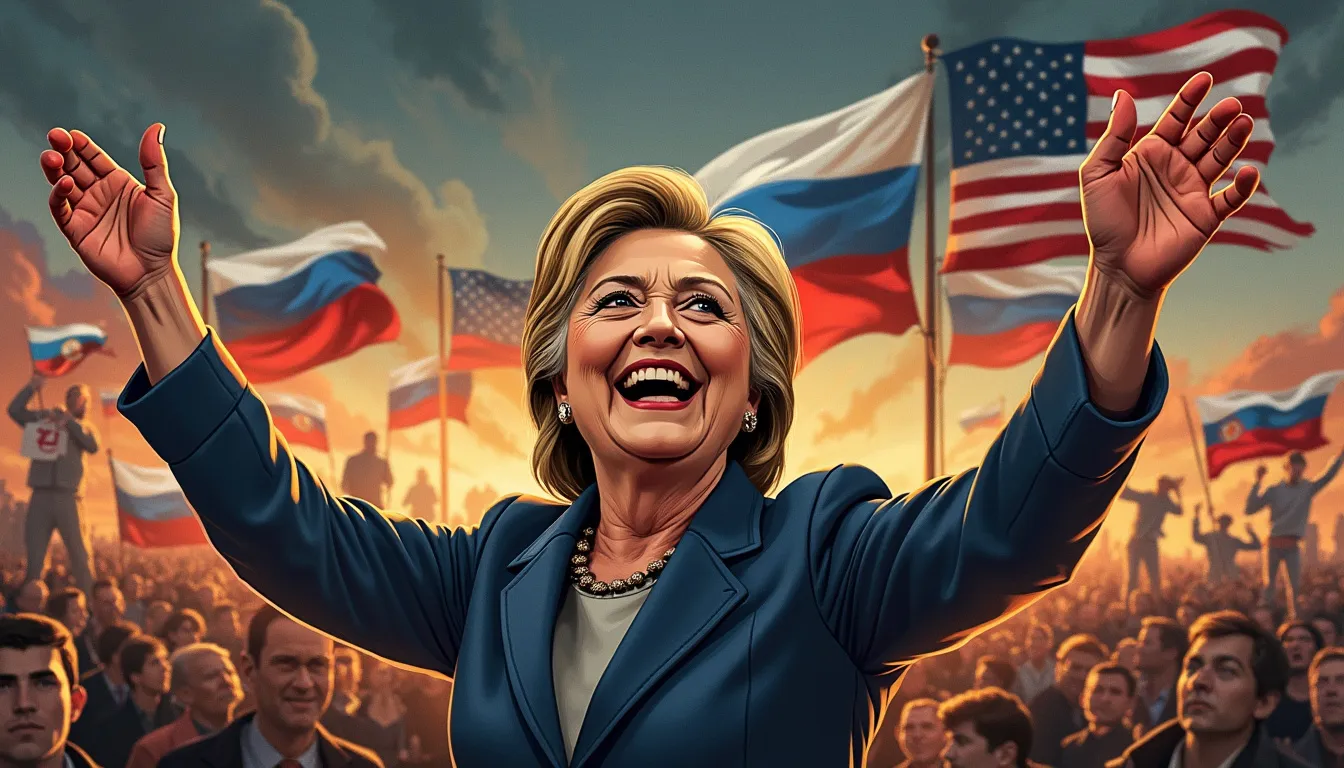
Hillary Clinton Urges Criminal Charges for Americans Engaging in Free Speech Resembling ‘Russian Propaganda’
Former Secretary of State Hillary Clinton recently called for criminal charges against Americans who engage in free speech that she believes sounds like Russian propaganda. This controversial stance has ignited a fierce debate about the potential implications for free speech rights in the United States.
Call for Criminal Charges
Clinton’s comments have sparked significant controversy, with many arguing that her proposal undermines the foundational principle of free speech. Critics contend that criminalizing speech based on its perceived alignment with foreign propaganda is a dangerous precedent that could stifle open discourse and dissent.
Criticism of Free Speech Stance
Clinton’s stance has drawn strong rebukes, particularly from Republicans and free speech advocates. They argue that her position could lead to the suppression of voices that diverge from the mainstream or dominant political narratives, effectively criminalizing political disagreement. This critique underscores a broader fear that such measures could be weaponized to silence opposition.
Political Context
The timing of Clinton’s remarks is also significant, coming amidst the heated backdrop of the 2024 election cycle and ongoing political tensions. Her statements are seen as part of a broader trend where political figures are increasingly advocating for tighter controls on speech they deem harmful or misleading. This narrative reflects a growing polarization in how free speech is perceived and regulated across the political spectrum.
Comparison to Authoritarian Measures
Some of the harshest criticism has come from those who liken Clinton’s proposal to authoritarian actions that restrict free expression. The suggestion that speech sounding like Russian propaganda could be criminalized is viewed as particularly contentious, evoking comparisons to draconian measures that contradict democratic values. Critics argue that such policies are a slippery slope towards greater government control over speech.
Republican Response
The Republican response to Clinton’s comments has been swift and pointed. Party members accuse her of inciting left-wing violence and pushing for the imprisonment of political adversaries. This reaction highlights the deep partisan divides that exist around issues of free speech and political expression, with Republicans framing Clinton’s stance as an assault on fundamental democratic freedoms.
In conclusion, Hillary Clinton’s advocacy for criminal charges against Americans who engage in speech resembling Russian propaganda raises significant concerns about the future of free speech in the United States. The debate underscores the ongoing tension between maintaining national security and protecting constitutional rights, a balance that remains contentious as the political landscape continues to evolve.
